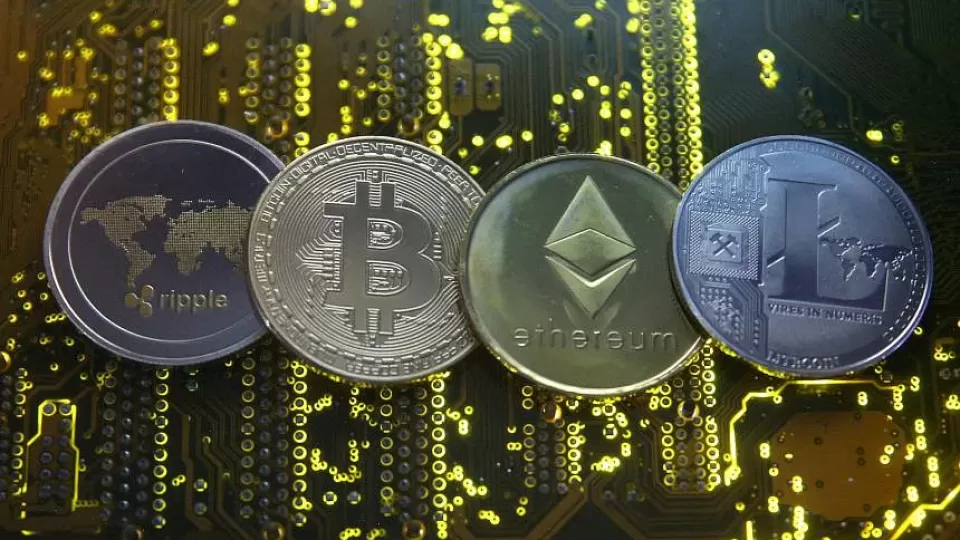July 28, 2022
SEOUL – When algorithmic stablecoin terraUSD and its sister luna was introduced in 2018, it was widely touted as “revolutionary.” Now, the algorithmic disaster that has sent shockwaves across the cryptocurrency market was one that was “waiting to happen,” according ethereum founding member and crypto entrepreneur Joel Dietz.
“It’s a project that had obvious design flaws,” Dietz told The Korea Herald in an interview conducted by video.
“When I saw them (terraUSD and luna), I thought they shouldn’t exist, and no legitimate person should be hyping this project. But I was surprised that some of the industries were getting behind it,” he said.
As a founding member of the ethereum platform — jumping into the project on day one — Dietz is viewed as a visionary and a “renaissance man” in the crypto sphere.
He joined the ethereum platform in 2013, where he worked alongside co-founder Vitalik Buterin for nearly a year and kicked off an internal project that eventually became the popular Metamask wallet.
Several preceding models before terraUSD and luna “had tried this exact same model and failed, in the basically same way,” according to Dietz, who has published academic research on the subject of cryptoeconomics.
However, he wouldn’t call the terraUSD and luna a pyramid scheme, despite saying they had some of the “same colors.”
South Korean prosecutors in recent weeks have been widening their probe on the price fall fiasco of terraUSD and luna here, which lost almost their entire value in May. In a development of events, prosecutors raided Terraform Labs – the parent company behind the troubled cryptocurrencies — earlier this month. Though the exact number of victims and the total damage is yet to be known, authorities believe more than 280,000 local investors lost almost $38 billion in the first week of the price fall alone.
On the current “cycle” of the crypto winter, Dietz said that it was an expected result from an accumulation of risks stemming from “projects that lack good fundamentals and are over-leveraged.” It was a “blowout” under a system that lacks solid regulatory oversight, he said, adding that hard times for crypto are likely to continue “until the flaws are adjusted.”
Cryptocurrencies were dealt a harsh blow this year, losing $2 trillion in value since the height of a massive rally in 2021. Bitcoin, the world’s biggest digital coin, has shed some 70 percent of its market value from an all-time high in November of nearly $69,000.
In these volatile times and even in less harsh market conditions, investors should always “have some basic understanding of the technology and how it runs,” Dietz warned.
“Investors need to be cautious and aware, as there is always the market hype and enthusiasm,” he said, cautioning that investors need to know what the project is in the first place.
“It is much better to have an understanding of the technology, what the actual benefit of the project is; how does it improve over the state that was there previously; and the credentials of the team. A lot of these crypto projects are basically recycling team members that haven’t actually delivered anything in the past, or what they’ve delivered in the past were scam projects,” he said.
After taking a break from the crypto industry, Dietz came back by setting his direction to the metaverse.
Dietz currently leads Metametaverse, a platform where users can explore and build metaverses with play-to-earn non-fungible token games. He said he was surprised at how far the metaverse and NFTs have come.
“I think some aspects have grown very fast, while some have grown slower. The concept of NFTs and virtual asset ownership and land ownership was something that I remember talking about in 2013,” he said.
“People got excited about one very particular use case for NFTs, like a profile picture (back in the day), and now we are starting to unpack some of the other utility-based use cases,” he added.
The Metametaverse CEO painted a rosy future for South Korea’s metaverse technology and development.
“There are some traditional strengths of Korea such as the game industry, so I can see a really productive fusion of metaverse, virtual worlds and gaming. Things that are more kid-friendly with just great experiences in themselves, and not necessarily just for the speculative value in them.”
Born in 1982, Dietz was a child prodigy in programming. He started learning programming at the age of six, and won a scholarship to study computer science at Arcadia University in Pennsylvania at 13 years old. He then received academic degrees from Brown University and the University of Pennsylvania.
He is currently a Connection Science Fellow at the prestigious Massachusetts Institute of Technology. He has dabbled in poetry and the arts, even going far as being part of the Berlin art scene from 2012 to 2013. Dietz has since been blurring the lines between classic arts, poetry and futuristic technology, according to industry insiders.


